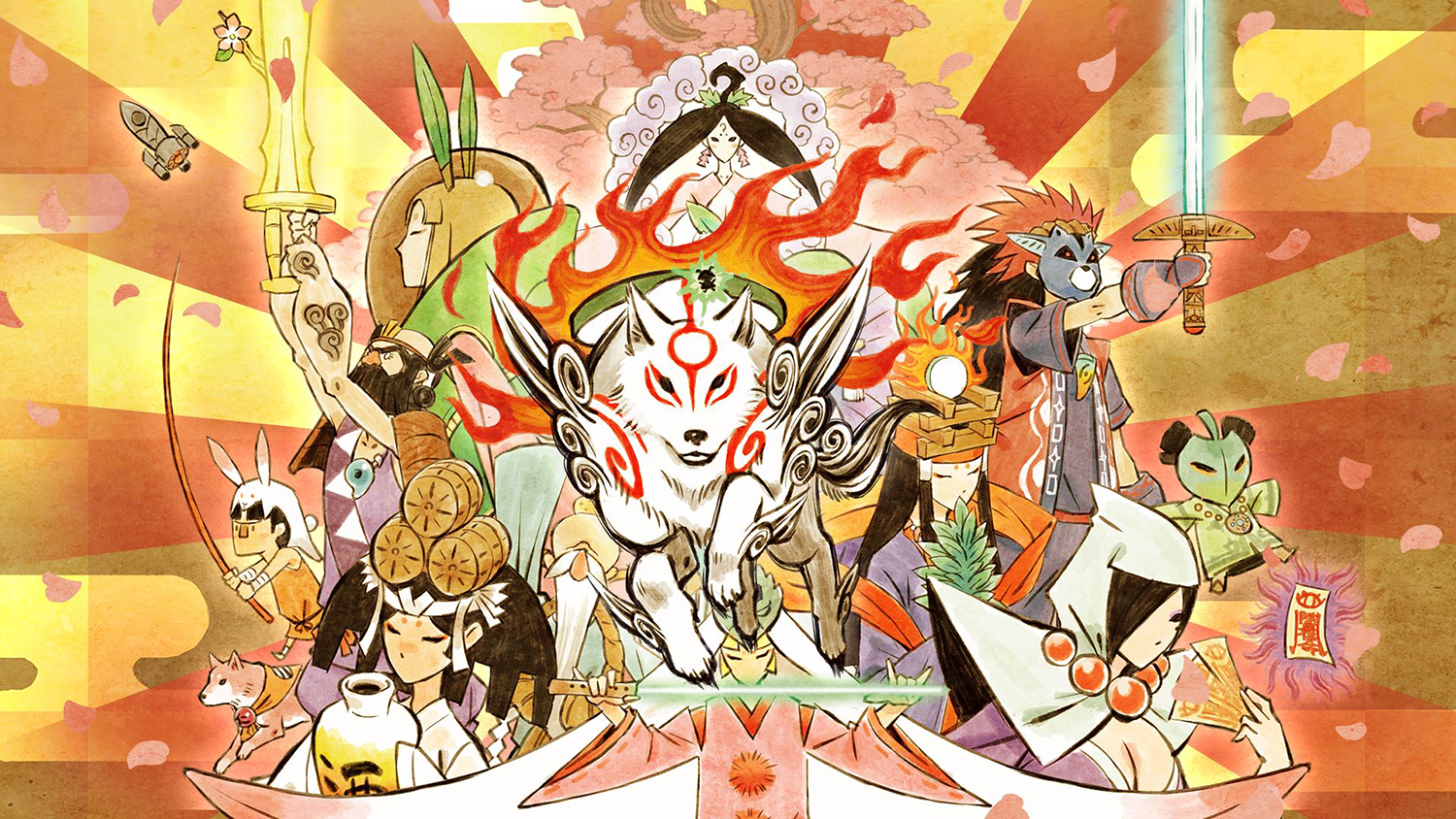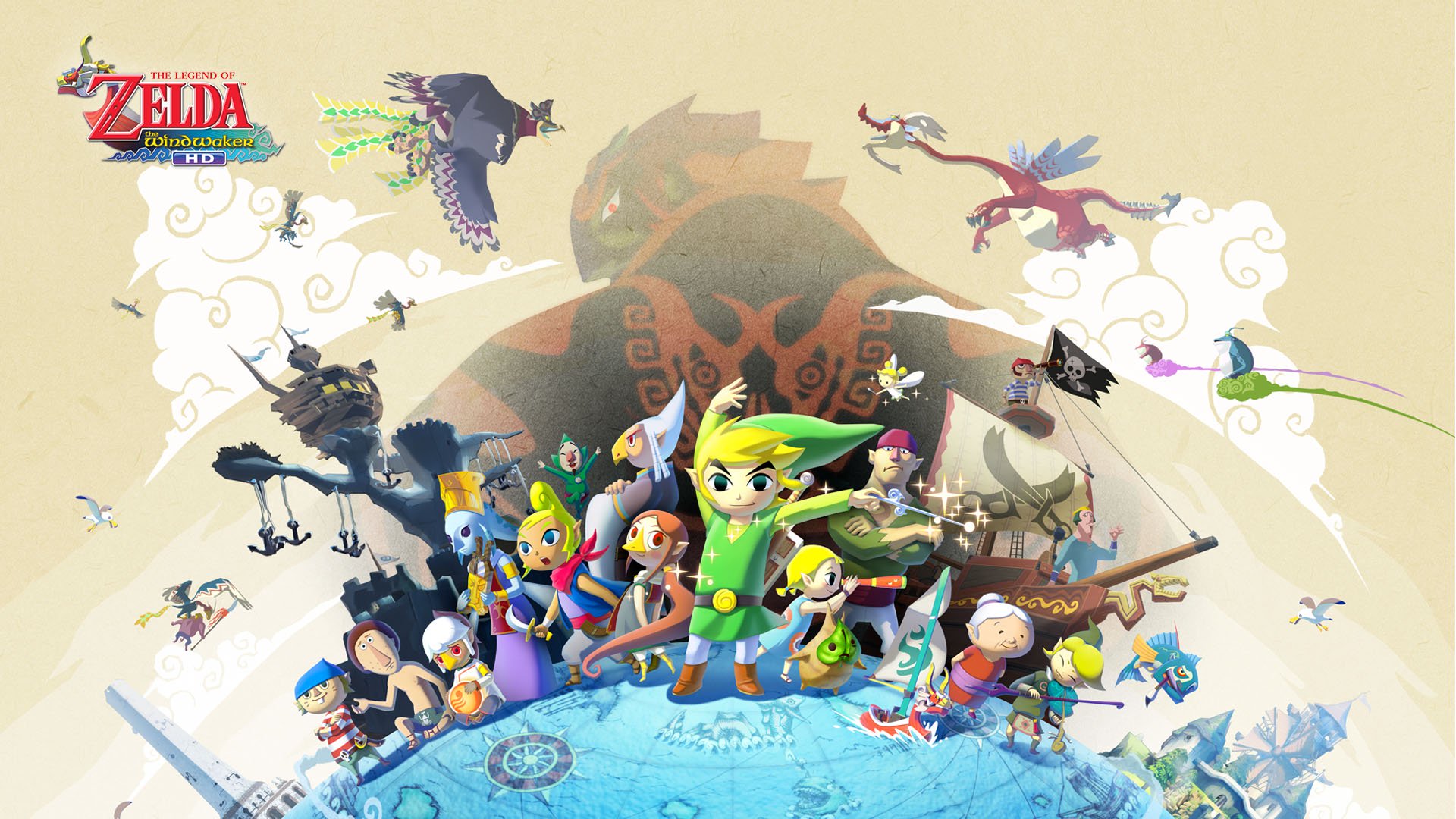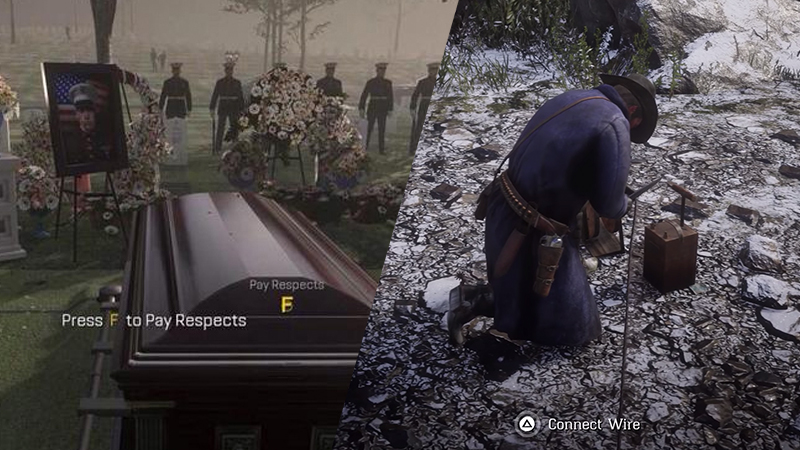So I’ve had this opinion for a long time, and I’ve even written essays in high school/done presentations in college about this topic, but I wanted to immortalize it here, as well:
Video games have the potential to equal the intellectual capacity and value of classic literature.
That is not to say that they are interchangeable with each other, nor is it to say that one is inherently superior to the other. Look, I love books, too. Hell, I love books so much that I became a professional writer. But I often see bookworms scoff at at video gamers as if they were nothing but button-mashing Neanderthals chugging neon green soft drinks and munching on triangle-shaped, nacho-cheese-dusted tortilla chips. I think that characterization does a disservice to the art form—and yes, video games are an inarguable form of art; it’s literally a major at the art school from which I have a BFA.
Tell me to my face that this isn’t art.
Anyway, let’s compare apples to apples, shall we? Unless you’re a serious fan of typesetting, novels aren’t really visual art forms (excluding book covers, which can be absolutely breathtaking). Their artistic value comes from the narratives captured within their many pages, often inclusive of different themes, motifs, and symbols—welcome back to high school English class, everyone. Now, I believe that the intellectual value of video games exceeds strictly the realm of compelling narrative, but for comparison’s sake, we’re only going to talk about story for right now, capiche? Great.
If we’re going to talk about classic literature, it’s probably only fitting that we start with the iconic benchmark by which basically all hero stories are told—Homer’s The Odyssey. This epic poem chronicles the adventure of Odysseus, king of Ithaca, as he journeys home following the events of Homer’s previous epic poem, The Iliad.
The Odyssey follows (and is perhaps responsible for popularizing) the format of the hero’s journey, in which a protagonist goes through trials and tribulations to achieve a specific goal, encountering archetypes of allies, mentors, and antagonists along the way. Many action/adventure pieces follow some permutation of this format; it’s a tried and true outline for creating a compelling and satisfying story. Since most video games involve some measure of action/adventure element, it’s important to understand this canon.
One of my favorite installments in my all-time favorite franchise.
I know I talk about The Legend of Zelda games a lot, but it’s only because they’re always so damn good. This time, we’re going to observe LoZ:WW from the perspective of the hero’s journey.
We have a protagonist (named Link), who starts off just a young kid living on an island when his sister is kidnapped by a giant bird. That’s Link’s call to adventure. He goes on an epic journey, meeting a talking boat inhabited by the spirit of the King of Hyrule—his supernatural aid/mentor—gets royally fucked up (by threshold guardians) while trying to save his sister because he’s too weak, goes through trials and tribulations to get stronger, gets fucked up some more as his ally gets captured by the ultimate antagonist, Ganon, (the abyss), has to get even stronger by assembling the pieces of the Triforce of courage (his transformation), he saves his sister (atonement), then he has to fight Ganon again with the help of the newly empowered princess Zelda and her Light Bow (gift from the goddess), defeating him and restoring peace to all the land—whereupon it is implied that he and his newly assembled friends get to go on endless adventures to come (the return).
All along the way, LoZ: WW envelopes you in a charming world full of eclectic but relatable characters with sub plots that are all extremely satisfying to resolve. The game tells an emotionally compelling story while challenging you to think and react in creative ways to progress the narrative. I’ve played through and beaten LoZ: WW at least three different times in my life, and each playthrough is equally as satisfying as the previous one—similar to how people have read through The Odyssey numerous times and found satisfaction in its story.
You may be thinking, “but Alex, the hero’s journey is the low-hanging fruit of narrative structure. What about books like To Kill A Mockingbird or Catcher in the Rye that deal with humanistic themes, like the loss of innocence? Or Fahrenheit 451 or Brave New World that deal with control/censorship in a modern world?" What about complex stories about morality and the human condition apart from going out on an epic adventure?”
Great question, my friend!
Red Faction: Guerilla not only had some of the funnest gameplay mechanics in recent memory, but it really makes you rethink your socio-political preconceptions.
In 2009, developer Volition, Inc. (which is now Deep Silver Volition, LLC) released Red Faction: Guerilla under the publisher THQ. The game is a 3rd person POV shooter game with a revolutionary mechanic at the time—fully destructible environments.
From RF:G’s wiki:
Red Faction: Guerrilla takes place in the year 2126. The Earth Defense Force (EDF), the allies in the original Red Faction, have become the main antagonist of RF:G. Although initially supportive of the Martian miners, Earth's natural resources have run scarce, and as a result, its world economy has collapsed from rampant speculation of commodities and lack of production. Under pressure by Earth's corporations and leaders to acquire the resources of Mars at any cost and at a pace to meet Earth's high demand, the EDF has forced Martian society into a permanent state of unfree labour. The newly reformed "Red Faction" arises to revolt against the EDF, drive them off the planet, and begin fairer negotiations with Earth.
You play as Alec Mason, who finds himself shoved into the midst of a rebellion after witnessing the murder of his brother at the hands of the planet’s governing body, the EDF. In the game, you fight for the greater good of the Martian residents at the hands of tyranny. Red Faction: Guerilla is far from subtle about its implications—from its on-the-nose title, to the content of its narrative, to its constructivist-inspired art style—the message is obvious: you are literally playing as a communist.
Red Faction: Guerilla’s logo is heavily inspired by constructivist art from Russian propaganda from the early 1900s.
It’s never explicitly stated that you’re a communist. But you’re fighting for the equal distribution of wealth and prosperity in the game—it really doesn’t have to be explicitly stated. And that’s the gorgeous part of it: once you realize what’s going on—that you’re playing the protagonist in a communist rebellion—it really challenges the American propaganda that’s been drilled into our heads since the first Great War. You empathize with Alex Mason and the Red Faction. You want to topple the established governing body with your own two hands and battle-worn sledgehammer. “Down with the EDF!” you might find yourself rallying throughout the course of the game. If you rooted for the Red Faction, you rooted for communism, plain and simple. How’s that for compelling and intellectual narrative?
“Video games are the shit; come at me, bro!”
Conclusion:
Video games and literature have equal potential when it comes to narrative intellectuality. Sure, there are brain-dead games that don’t really serve a higher intellectual purpose, but there are also books that fall in the same category (see: Goat Simulator and the Main Chick vs. Side Bitch Series, respectively). This blog post didn’t even attempt to cover the puzzle-solving element or resource-management skills that video games can help develop. But that’s a blog post for another time. For now, all I hope you do (if you don’t, already) is pick up a story-based video game and indulge in its narrative. If you feel so compelled, try to extrapolate the greater implications of that narrative to see if the writers, developers, and artists of that game are trying to make some sort of commentary on the nature of the human condition. If you want any suggestions, feel free to drop me a line—I’d be more than happy to add onto your gaming backlog.
A really cool couple’s tattoo idea I saw on the Internet a long time ago.















